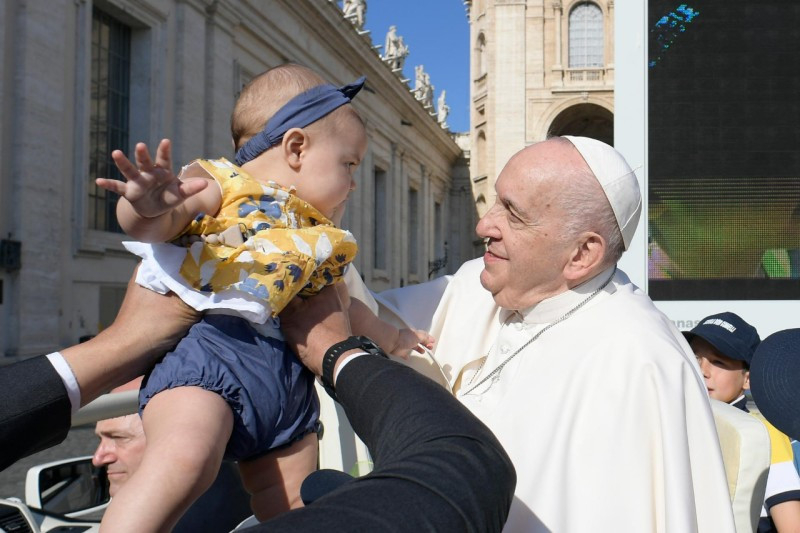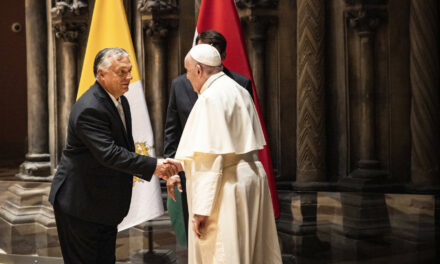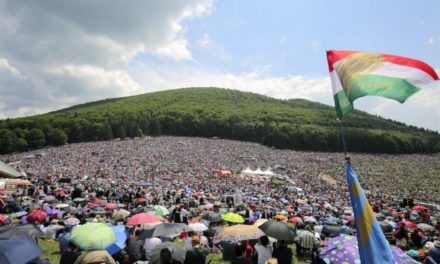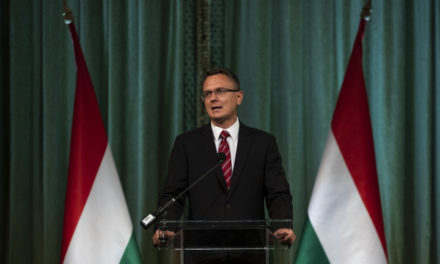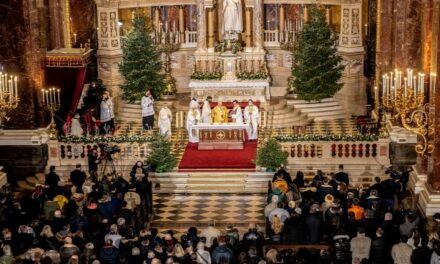On May 11, the Holy Father spoke about old age for the ninth time during the morning general hearing. In his catechesis, he reflected on the figure of the biblical Judith. The Hungarian translation of his speech was published by Magyar Kurír.
Excerpts from the speech:
Today about Judith , a biblical heroine. The end of the book that bears her name - we heard an excerpt from it [Jud 16,21.23-24] - summarizes the last phase of Judith's life. She is a woman who defended Israel against her enemies... Thanks to her beauty and cunning, she saves the city of Betilua and the people of Judah from the siege of the violent and god-blaspheming enemy, Holofernes, the general of the Assyrian king Nebuchadnezzar. After the risky venture, in which she was the protagonist, Judit returns to her town, Betilua, where she enjoys a good old age, living until she is one hundred and five years old. The time of old age has come for him, as it has for many other people (…)
Judit lived more than a hundred years, which is a special blessing. But nowadays it is not so rare for someone to live that long after retirement. How do we interpret this time available to us, how do we make the most of it? "Today I am retiring, but I still have many years ahead of me... What can I do in these years, how can I grow - in age, that goes without saying - but how can I grow in authority, sanctity of life, and wisdom?" (…)
Of course, there is the joyful and tiring work of taking care of grandchildren - and nowadays grandparents play an extremely important role in the family, in raising grandchildren - but we also know that today fewer and fewer children are born, and parents are often further away and have to travel more , they are in an unfavorable situation in terms of work and housing. Sometimes, however, they are reluctant to entrust anything to the grandparents in the upbringing of their children, they only use them for care and help in the strict sense of the word.(...)
But let's ask ourselves if we are putting in the effort for this transformation. Or do we simply suffer from helplessness due to material and economic circumstances? The joint presence of the generations is actually getting longer and longer. Are we - all of us - trying to make these conditions more humane, more loving and fairer in the new circumstances of modern societies? For grandparents, supporting their children in raising children is an important part of their vocation. (…)
Judit was widowed at an early age, she had no children, but as an old woman she was able to live a full and serene life, knowing that she had fulfilled the mission that the Lord had entrusted to her. For him, this is the time to leave a rich legacy of wisdom, tenderness, and gifts to the family and the community: the legacy of good and not only good things.
When we think of inheritance, we often think of goods and not the good that we did in our old age, that we discarded, the good that is the most beautiful legacy that we can leave to others.
It was in her old age that Judit "liberated her favorite servant". This is a sign of attentive and humane respect for the person close to him. This servant accompanied him at the time when he defeated the dictator, when he cut his throat. As an old person, one loses a little of one's vision, but one's inner gaze becomes more penetrating: one sees with one's heart. You become able to see things that you did not notice before. The old can look and they can see... That's right: the Lord does not entrust his talents only to the young and the strong. (…)
The entire speech of the Holy Father can be read here.
Source: Hungarian courier
Translated by Endre Tózsér SP
(Header image: Vatican.va )

